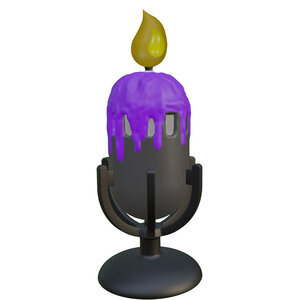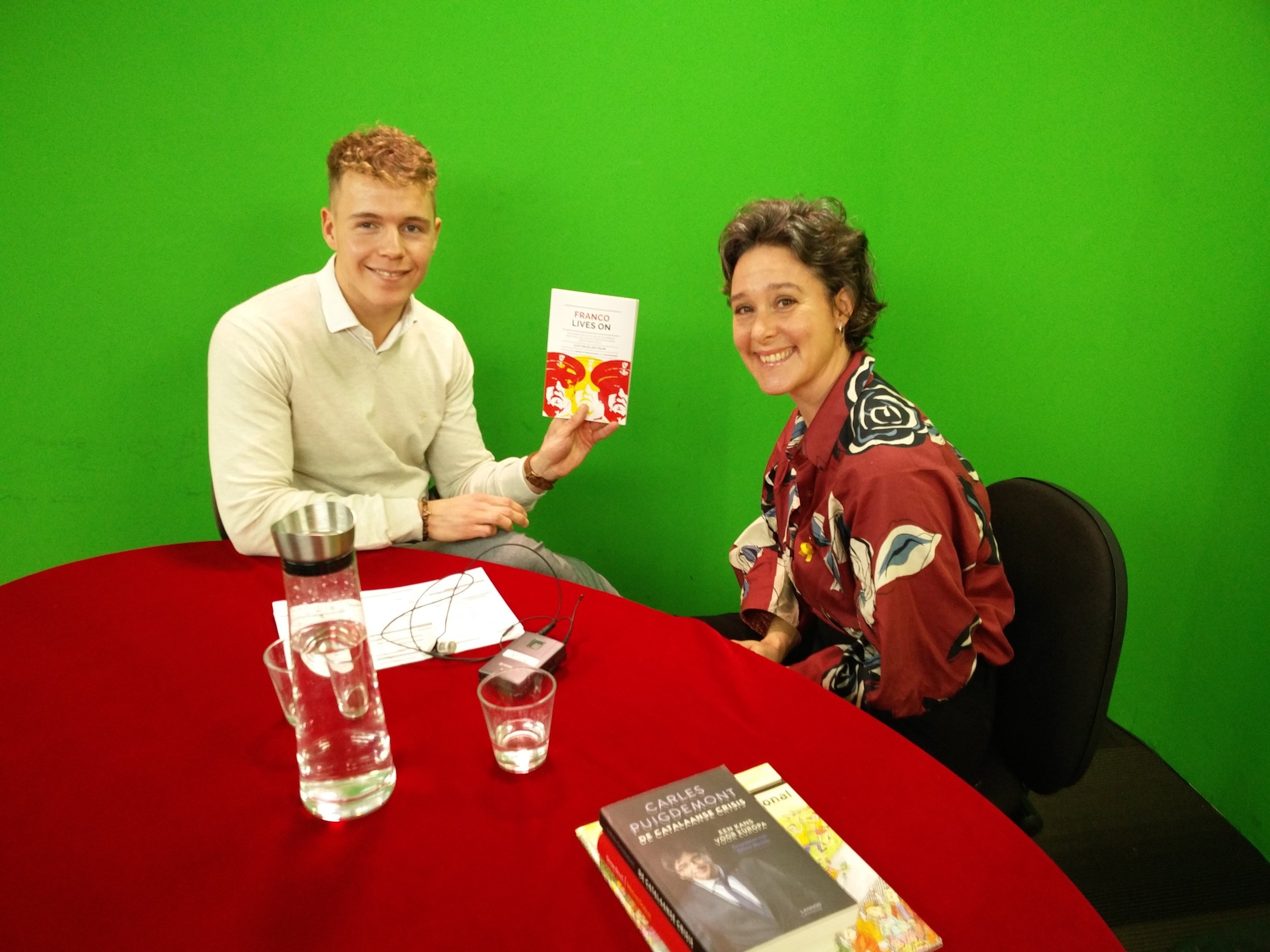Interview politieke gevangenen in Spanje - 'Ongehoord' op Salto tv
scroll down for English
This interview has been subtitled on YouTube to Catalan, Spanish, English and Dutch. Click here to view the interview and then turn the subtitles on with the YouTube controls in the bottom right of the video.
Laura Prat Bertrams en Rico Brouwer gingen voorafgaand aan de start van de rechtszaak in Madrid in gesprek met Tom de Krijger voor een uitzending van Ongehoord – voor Salto in Amsterdam.
Het gesprek gaat over de situatie in Spanje en de petitie catalaansegevangenen.petities.nl:
Laura: ‘..We leven binnen de Europese unie en daar hebben we met elkaar een aantal basale afspraken gemaakt over mensenrechten en dat moeten we koesteren. Wanneer we zien dat die afspraken geschonden worden moeten we daar tegen in gaan want het is in feite een bedreiging van onze eigen democratie’. ‘Je ziet soms dat mensen zeggen; nou ik wil er niks mee te maken hebben want ik ben tegen de onafhankelijkheid van Catalonië. Maar die petitie gaat daar helemaal niet over’.
Tom: ‘jullie zeggen dat het politieke gevangenen zijn, maar wanneer is iemand een politieke gevangene?’
Rico: ‘de term politieke gevangenen is niet eenduidig in een woordenboek terug te vinden, dus daar zijn de interpretaties over verdeeld maar als je met een democratisch gekozen mandaat je verkiezingsprogramma uitvoert door een referendum te houden en de mensen kiezen JA, en om die reden ga je in de gevangenis dan is dat dus voor een politieke functie die je uitvoert. Ik weet niet welke definitie jij voert voor politieke gevangenen maar ik weet zeker dat dit daar binnen valt’.
Laura: ‘Of het referendum illegaal was of niet daar kunnen we nog heel lang over spreken, de Spaanse staat wilde het niet dus dat is een ding. Maar de grondwet overtreden is niet perse een strafbaar feit. Daarvoor moet iets in het wetboek van strafrecht staan. Er staat nergens in het wetboek dat als je een referendum uitschrijft waar de Spaanse staat het niet mee eens is dat je dan strafrechtelijk vervolgd kan worden’. ‘En een staat mag alleen als laatste optie geweld gebruiken. Die Spaanse staat had natuurlijk kunnen zeggen; we vinden het achterlijk wat jullie doen we vinden dat jullie dit niet mogen doen, maar ja het telt niet dus ga lekker je gang .. maar we doen er natuurlijk helemaal niks mee. Ze hoefden helemaal niet op onschuldige mensen in te slaan om hun punt te maken’.
‘Dat justitiële apparaat en de rechtspraak in Spanje zit niet zo heel goed in elkaar. De openbaar aanklager zegt: jullie hebben een referendum gehouden, jullie wisten dat de Spaanse staat het daar niet mee eens was dus jullie hadden zelf wel kunnen bedenken dat de Spaanse staat met geweld moest optreden en daarmee zijn jullie verantwoordelijk voor dat geweld en is er sprake van rebellie’.
Tom: ‘Er staat in de Spaanse constitutie zelf dat Europese wetgeving boven Spaanse Wetgeving staat en Europees gezien mocht dit referendum plaatsvinden omdat landen .. volken recht hebben op soevereiniteit.’ ‘Kunnen ze niet naar het Europese hof?’
Rico: ‘De reden dat we die petitie gestart zijn is dat Nederland en de Europese unie een verplichting hebben in de functie die ze hebben om naar Spanje toe te gaan en zeggen, wacht even zo doen we dat niet. Daar roepen we toe op. Maar je hebt gelijk, je kan natuurlijk ook een appèl gaan doen op Europese mensenrechtenhoven die daar voor zijn. Maar daarvoor moet je eerst je lokale procedure doorlopen hebben en ja de Spaanse regering houdt dat tegen’.
Rico: ‘De Europese unie, Timmermans en Juncker en Tusk die zitten in een soort patstelling die ze zelf kunnen doorbreken. Ze zeggen “Spaanse aangelegenheid” om de vingers ook maar niet te branden maar ze hebben een morele keuze te maken; gaan mensenrechten voor moet dat ook zo zijn in lidstaten? Of laten we dit gaan en ontploft het in Spanje Catalonië en hebben we meer schade.
Tom: ‘Wat denk je dat de reden is dat een Juncker of een Timmermans zich hier niet mee bezig houdt?’
Laura: ‘Spanje is een hele grote economische macht dus ik denk dat financiële belangen en politieke belangen hier een hele grote rol in spelen’. ‘Als je mij vraagt van wat denk je waarom ze niets zeggen, dan denk ik dat het daarmee te maken heeft’.
Rico: ‘Ik denk dat het vrij eenvoudig is voor Frans Timmermans namens Nederland om hardop te zeggen wat wij hier zeggen. En dat geldt voor Juncker, Tusk en Rutte ook. Daarom doen we die petitie ook naar de Tweede Kamer. Als onze tweede kamer hardop zegt als een van de oprichters van de Europese unie; ‘Spanje dit is niet oké, laat ze vrij en ga in gesprek met Catalonië om samen een oplossing te vinden, dat is alles wat ze hoeven te doen.’
Tom: ‘ja maar blijkbaar is er dus een reden dat ze dat niet doen. Is dat misschien vanwege intern verschil van visie binnen de verbanden zoals ALDE (liberalen) en EPP (Christen democraten)?’
Rico: ‘Door dat interne partij politieke probleem dan maar niet op te lossen creëren ze een groter extern probleem en dat is een fundamenteel probleem voor de Europese unie. Het is korte termijn denken, tot een eigen termijn voorbij is’.
in English
Laura Prat Bertrams and Rico Brouwer are interviewed by Tom de Krijger for a broadcast of Ongehoord - Salto city tv in Amsterdam, prior to the start of the trial in Madrid.
This conversation is about the situation in Spain and the petition catalaansegevangenen.petities.nl Laura: '..within the European Union we have made a few basic agreements about human rights and we need to uphold those. When we see that these agreements are violated, we must oppose that because it is in fact a threat to our own democracy." "You sometimes hear people saying; I do not want anything to do with this because I am against the independence of Catalonia. But that petition is not about that."
Tom: 'You say that they are political prisoners, but when is someone a political prisoner?'
Rico: 'the term political prisoners can not be found clearly in a dictionary, so there are several interpretations. But when you use a democratic mandate to execute your electoral program and you have a referendum and people choose YES .. and for that reason you go to prison, then that is a political function that you carried out. I do not know what definition you have for political prisoners, but I am sure that this falls within it.'
Laura: 'Whether the referendum was illegal or not we can talk about it for a long time. The Spanish state did not want it, so that's one thing. But breaking the constitution is not necessarily a criminal offense. There must be something in the penal code. Nowhere does it say that when you have a referendum that the Spanish state disagrees with, you can then be prosecuted ". "And a state should only use violence as the last resort. The Spanish state could of course have said; we think it is retarded what you do we think you should not do this, but hey it does not count, so go ahead ... but of course we’ll ignore it. They did not have to beat up innocent people at all, to make that point." "The judicial system in Spain is not very well organized. The prosecutor says: you have held a referendum, you knew that the Spanish state would disagree with it so you could have figured that the Spanish state had to act with violence and that is why you are responsible for that violence and there of rebellion'.
Tom: 'In the Spanish Constitution it says that European legislation is above Spanish Legislation and, from a European point of view, this referendum could take place because countries ... people are entitled to sovereignty.' 'Can they not go to the European court?'
Rico: 'The reason we started this petition is that the Netherlands and the European Union have an obligation in the function they have to go to Spain and say: wait a minute, we do not do that. That is what we call on them to do. But you are right, they can of course also make an appeal to European human rights courts. But before you can do that, you have to go through your local procedure first and the Spanish government is against that.'
Rico: 'The European Union, Timmermans and Juncker and Tusk are in a kind of stalemate that they thremselves can break through. They now say "Spanish affair" to not burn their fingers, but they have to make a moral choice; Do human rights have to be upheld in member states or not? If they let this go, they let it explode in Catalonia and Spain and have more damage.’
Tom: "What do you think the reason is that a Juncker or a Timmermans does not concern himself with this?"
Laura: 'Spain is a very big economic power, so I think that financial interests and political interests play a big part in this.' 'If you ask me what do you think why they say nothing, then I think it has to do with that'.
Rico: 'I think it's pretty easy for Frans Timmermans on behalf of the Netherlands to say aloud what we say here. And that goes for Juncker, Tusk and Rutte too. That is why we are also sending this petition to our House of Representatives. If our Tweede Kamer says, as one of the founders of the European Union; 'Spain this is not okay, let them go initiate dialogue with Catalonia to find a solution together, that's all they have to do.'
Tom: 'yes, but apparently there is a reason why they do not. Is that perhaps because of internal differences in vision within the associations such as ALDE (Liberals) and EPP (Christian Democrats)? '
Rico: 'By not solving that potential internal party's political problem, they create a larger external problem and that is a fundamental problem for the European Union. It is short-term thinking, until your own term is over '.
Tijdens het interview zijn op de achtergrond onder andere beelden te zien van deze infographic en van de Diada demonstratie op 11 september 2018.
During the interview images are shown of this (English spoken) infographic and of Diada demonstration on september 11th 2018
source/bron van interview: https://www.salto.nl/programma/ongehoord/XOtaOeRu6s2iGQc0MSIyY
uitzending van: Ongehoord talkshow


